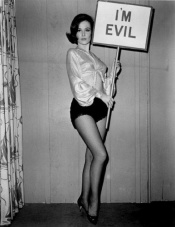Difference between revisions of "Chapter 41"
| Line 23: | Line 23: | ||
'''Inside the ''zona'''''<br /> | '''Inside the ''zona'''''<br /> | ||
The word Gulag was not often used in Russian — either officially or colloquially; the predominant terms were ''the camps'' and ''the zone'', usually singular — for the labor camp system and for the individual camps. | The word Gulag was not often used in Russian — either officially or colloquially; the predominant terms were ''the camps'' and ''the zone'', usually singular — for the labor camp system and for the individual camps. | ||
| + | |||
| + | ==Page 469== | ||
| + | '''Mishpochathon'''<br /> | ||
| + | mishpocha - (Yiddish) the entire family network of relatives by blood or marriage (and sometimes close friends); "she invited the whole mishpocha" | ||
==Page 470== | ==Page 470== | ||
Revision as of 22:18, 28 December 2013
How to Format Entries
Quoted Text
Explanation or analysis of Quoted Text
- Individual opinions or discussion. Sign by writing "~~~", if you like.
To add a page: Type ==Page xx==
Please add entries for each page in the order they appear on the page.
Page 464
they can hear Elvis-movie music
Chazz is watching Girl Happy (1965), starring Elvis and Shelley Fabares.
It's a scene from the Elvis Presley movie Girl Happy (1965).
See Faberes in action as Elvis sings "The Meanest Girl in Town."
Sillage from the Elvis Hitler song Green Haze mentioned on page 177?
Love will find a way
Pablo Cruise?
Page 468
Inside the zona
The word Gulag was not often used in Russian — either officially or colloquially; the predominant terms were the camps and the zone, usually singular — for the labor camp system and for the individual camps.
Page 469
Mishpochathon
mishpocha - (Yiddish) the entire family network of relatives by blood or marriage (and sometimes close friends); "she invited the whole mishpocha"
Page 470
what happened to 'corrupt artifact of...' whatever it was?
Page 115. "“I don’t do lunch. Corrupt artifact of late capitalism. Breakfast maybe?"
Page 475
paraphrasing Cheech & Chong . . . "I woulda shot him, man."
Anyone know what she's paraphrasing? I couldn't figure this out.
set and setting, as Dr. Tim always liked to say...
From WIKI: Set and setting describes the context for psychoactive and particularly psychedelic drug experiences: one's mindset and the setting in which the user has the experience. This is especially relevant for psychedelic or hallucinogenic experiences. The term was coined by Timothy Leary, and became widely accepted by researchers in psychedelic psychotherapy.
Page 476
The Fatty Arbuckle Story
Here are all the "story of" films from the "BPX cable channel, which airs film biographies exclusively" (page 93) I could find. They often come, by the way, with disparaging remarks about Horst. Pynchon telling us something about Horst, the Biography Channel, film biographies and the actors who star in them and the people who watch them, perhaps even, Journey into the Mind of P and those who have seen it, etc?
page 94: Owen Wilson as Jack Nicklaus, Hugh Grant in The Phil Mickelson Story
page 94: Christopher Walken, starring in The Chi Chi Rodriguez Story
page 374: Anthony Hopkins in The Mikhail Baryshnikov Story
page 433: Ben Stiller in The Fred MacMurray Story
page 435: Alec Baldwin in The Ray Milland Story
page 466: The Anton Chekhov Story, starring Edward Norton, with Peter Sarsgaard as Stanislavski
Page 476: Leonardo DiCaprio in “The Fatty Arbuckle Story”
In the book, all the film titles were italicized except the last one, which had quotation marks. Just a slip of the pen?
| Chapter 1 pp. 1-7 |
Chapter 2 pp. 8-19 |
Chapter 3 pp. 20-29 |
Chapter 4 pp. 30-40 |
Chapter 5 pp. 41-52 |
| Chapter 6 pp. 53-67 |
Chapter 7 pp. 68-79 |
Chapter 8 pp. 80-86 |
Chapter 9 pp. 87-95 |
Chapter 10 pp. 96-111 |
| Chapter 11 pp. 112-120 |
Chapter 12 pp. 121-133 |
Chapter 13 pp. 134-144 |
Chapter 14 pp. 145-159 |
Chapter 15 pp. 160-171 |
| Chapter 16 pp. 172-184 |
Chapter 17 pp. 185-197 |
Chapter 18 pp. 198-210 |
Chapter 19 pp. 211-218 |
Chapter 20 pp. 219-229 |
| Chapter 21 pp. 230-238 |
Chapter 22 pp. 239-246 |
Chapter 23 pp. 247-255 |
Chapter 24 pp. 256-264 |
Chapter 25 pp. 265-273 |
| Chapter 26 pp. 274-287 |
Chapter 27 pp. 288-300 |
Chapter 28 pp. 301-313 |
Chapter 29 pp. 314-326 |
Chapter 30 pp. 327-337 |
| Chapter 31 pp. 338-346 |
Chapter 32 pp. 347-353 |
Chapter 33 pp. 354-364 |
Chapter 34 pp. 365-382 |
Chapter 35 pp. 383-394 |
| Chapter 36 pp. 395-407 |
Chapter 37 pp. 408-422 |
Chapter 38 pp. 423-438 |
Chapter 39 pp. 439-447 |
Chapter 40 pp. 448-462 |
| Chapter 41 pp. 463-477 |
